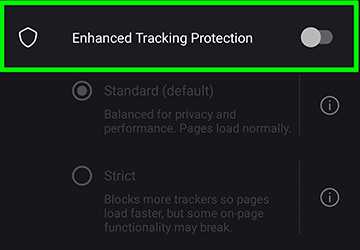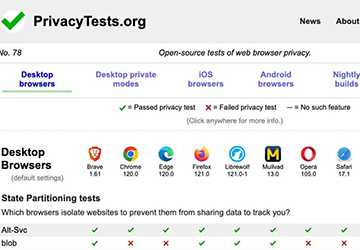Do you ever worry about your online privacy when browsing the internet? Most of us likely do. We hear frequent stories of data breaches and companies tracking user data without consent. It can make the internet feel like an insecure place.

But what if you could take back control of your privacy? New privacy-focused browser technologies allow you to browse the web freely without worrying about who might be watching.
These innovative browsers give power back to the user when it comes to data collection and encryption.
Why Does Online Privacy Matter?
Before we discuss the latest privacy tech, it's worth looking at why online privacy is so important in the first place. When browsing, most standard browsers allow third parties to collect your browsing data, search history, and other personal information without your permission. Over time, these parties build detailed profiles about your interests and habits.
It is creepy and opens up risks like data leaks and targeted advertising using your specifics. Imagine random companies knowing about every website you've visited - it's an uncomfortable thought!
Protecting your browsing data isn't just about hiding something or being paranoid. It's about taking back control of information that should be private to you. New privacy browsers empower users to surf the internet freely without being tracked or profiled at every turn.
1. Automatic Encrypted Connections
One innovation leading browsers now offer is encrypting connections automatically using HTTPS. Previously, it took effort for websites to encrypt connections.
Now, browsers automatically provide this protection whenever possible for a more secure browsing experience.
Some browsers even try accessing HTTPS versions of sites if HTTP fails; this prevents third parties from spying on unencrypted connections.
2. Blocking Trackers and Ads
Another everyday innovation is blocking online ads and associated trackers. Many ads use hidden trackers that profile users by monitoring sites visited and content consumed.
New browsers either block these trackers directly or utilize tracker blocklists; this prevents companies from building digital profiles about you. Some browsers even stop ads altogether for less intrusive browsing.
3. Enhanced Cookie Controls
Browsers also provide users more control over cookies - data websites store on your device. Options include automatically deleting cookies when sessions end or blocking third-party cookies altogether.
It prevents outside companies from using cookies to learn about your web history and share data with partners.
The enhanced cookie controls vary across different privacy browsers but put users back in the driver's seat overall.
4. Private Modes With Added Security
Most modern browsers already have private or incognito browsing modes. However, privacy browsers build on these with added precautions like routing traffic through anonymous proxies or disabling plugins.
It enhances standard private sessions by further limiting the digital footprint left behind after closing those tabs. Some browsers automatically delete local data after exiting, too.
5. Open-source code and Privacy Audit Reviews
Finally, many new privacy browsers also utilize open-source code and undergo third-party auditing. This transparency ensures they operate without hidden data collection behind the scenes.

Open-source code allows independent encryption experts to verify things function as intended. Privacy audits by outside organizations confirm browsers meet expected standards around encryption, blocking trackers, and user privacy.
Take Back Your Privacy
Browsing the internet doesn't have to mean losing control of your personal information. As you can see from this tiny sampling, significant innovations bring users' privacy back.
So, if you feel uncomfortable about how much data gets shared and tracked during normal web surfing, try a privacy-focused option. It's easier than ever to browse freely without every webpage visit being monitored.
Hopefully, this breakdown of the latest privacy defences gave some new browser options to consider. Refrain from being tracked across the internet against your will.





